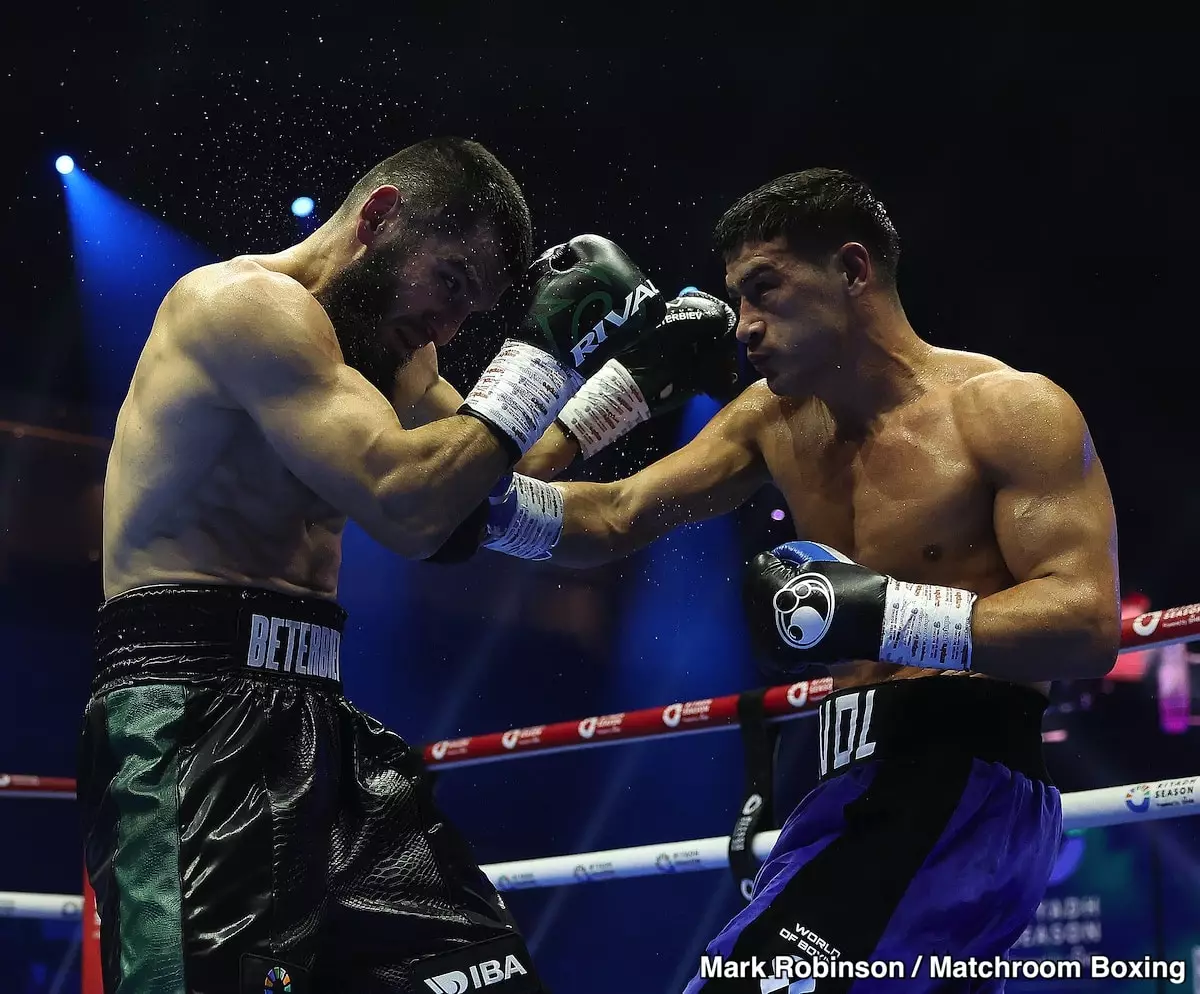As Dmitry Bivol reflects on his recent defeat to the undisputed light heavyweight champion Artur Beterbiev, the stakes of his next move loom larger than ever. With a record of 23 wins and 1 loss, 12 of which have come by knockout, the question emerges: Is an immediate rematch the best course of action, or could it spell disaster for his career?
The Risks of an Imminent Rematch
In the aftermath of a close yet decisive majority decision against Beterbiev, the allure of a quick turnaround is tempting. Bivol and his promoter, Eddie Hearn, are optimistic about their chances for redemption. However, the reality is that facing Beterbiev again poses significant risks. Should Bivol enter the ring and find himself on the losing end once more, the effects could be catastrophic; not just in a physical sense, but also mentally. A knockout defeat would not only mar Bivol’s record but could also plunge his confidence to new lows.
The psychological toll of such a crushing loss cannot be overstated. Losses at the elite level can create doubts in a fighter’s mind about their ability to compete at the highest echelon, leading to a decline in performance over time. Bivol’s defeat exposed vulnerabilities—notably his inability to withstand Beterbiev’s relentless pressure during critical rounds. After finding himself on the defensive in rounds seven, eight, ten, and eleven, it remains to be seen if he has the mental fortitude to bounce back.
Should Bivol persist with an immediate rematch and encounter a second loss, he would face an uphill battle to regain status within a fiercely competitive light heavyweight division. The prospect of regaining momentum would require him to defeat several formidable contenders, such as Joshua Buatsi, David Morrell, and David Benavidez—fighters who are all capable of capitalizing on Bivol’s potential declining confidence.
A return to the ring after another defeat would present different challenges. The reality is that an athlete’s legacy can be shaped by perception as much as actual performance. If Bivol suffers a knockout, it may cast doubt on his ability to succeed, not just against Beterbiev, but against any top-tier opponent. The repercussions from such a defeat could lead him into a cycle of successive losses, damaging his standing in the sport.
Exploring Alternative Paths
If an immediate rematch is not the right step for Bivol, the question arises: What are the alternative options? One potential avenue could be a move down to the super middleweight division. This is not only a less saturated weight class but also offers fewer immediate threats beyond the strong presence of Canelo Alvarez. If Bivol were to adapt and transition to this division, there remains a chance he could capture a championship belt and reinvigorate his career.
Roy Jones Jr. weighed in on the situation, suggesting the need for a rematch based on the fight’s competitive nature. He noted, “Beterbiev showed me more than he ever has before about being a boxer. He can actually box.” Jones validated Bivol’s initial success in the fight but recognized Beterbiev’s stronger finish and called for a neutral analysis of the bout. These perspectives underscore the debate surrounding the need for an immediate rematch, but they also highlight the fickle nature of professional boxing.
Ultimately, Bivol finds himself at a crossroads. The choice he makes in the coming weeks will not only dictate the trajectory of his career but will also reverberate through the light heavyweight division. While the allure of redemption is strong, Bivol must weigh the immediate risks against long-term repercussions of another potentially damaging loss.
Making a critical decision regarding his next fight could either lead to resurgence or further decline. In the ruthless sport of boxing, where every step is scrutinized, the choices made in the face of adversity can define a fighter’s legacy. Bivol has shown the tenacity and skill that got him to this point—now, it’s about transforming that potential into a comeback narrative that takes him back to the top.


Leave a Reply